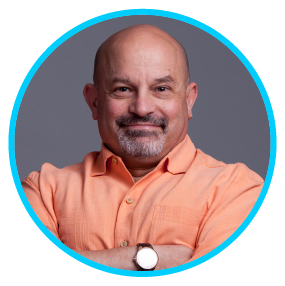Join Chief engineer of NASA’s JWST to explore the design
and development of the largest space telescope every imagined by humanity.
Discover how The Hunt for Planet B will shape our future and what we can learn
about the skills and relationships that drove our greatest technological journey
as a species.
About the Speaker
 Jonathan Arenberg is currently chief mission architect for Science
and Robotic Exploration at Northrop Grumman. His work experience includes all
phases of program and mission development, including early technology
development, mission concepts, detailed design, test and verification, and
integration and test. His last major program assignment was as chief engineer
for the James Webb Space Telescope. In the last few years, Dr. Arenberg has led
major mission studies for NASA and other government customers. He has been a
principal in major paradigm breaking concepts; the Starshade, MODE lenses, and
the OASIS mission based on an inflatable reflector. He is a creative and broad
thinker, capable of addressing the most challenging problems with practical and
effective solutions. In addition to optical systems experience from X-rays to
THz systems, he is also familiar with laser systems and components.
Jonathan Arenberg is currently chief mission architect for Science
and Robotic Exploration at Northrop Grumman. His work experience includes all
phases of program and mission development, including early technology
development, mission concepts, detailed design, test and verification, and
integration and test. His last major program assignment was as chief engineer
for the James Webb Space Telescope. In the last few years, Dr. Arenberg has led
major mission studies for NASA and other government customers. He has been a
principal in major paradigm breaking concepts; the Starshade, MODE lenses, and
the OASIS mission based on an inflatable reflector. He is a creative and broad
thinker, capable of addressing the most challenging problems with practical and
effective solutions. In addition to optical systems experience from X-rays to
THz systems, he is also familiar with laser systems and components.
Dr. Arenberg has a BS in physics, a MS and PhD in engineering, all from UCLA.
As a committed member of the scientific community, Dr. Arenberg is a long
serving California State Science Fair Judge, frequent public speaker, a referee
for several journals, and a guest editor for several special journal issues. He
is a Fellow of the international optics and photonics society, SPIE, for his
contribution to astronomy and lasers. He is the author of over 200 conference
presentations, papers, and book chapters and holds 15 European and U.S. patents
in a wide variety of areas of technology. Dr. Arenberg is also the co-author of
a recent book on systems engineering for astronomy from SPIE press. In 2020 Jon
was given the Professional Achievement Award from the UCLA Henry Samueli School
of Engineering and Applied Science.
SPEAKERS:
Jonathan Arenberg (Northrop Grumman Corp.: El Segundo, CA)